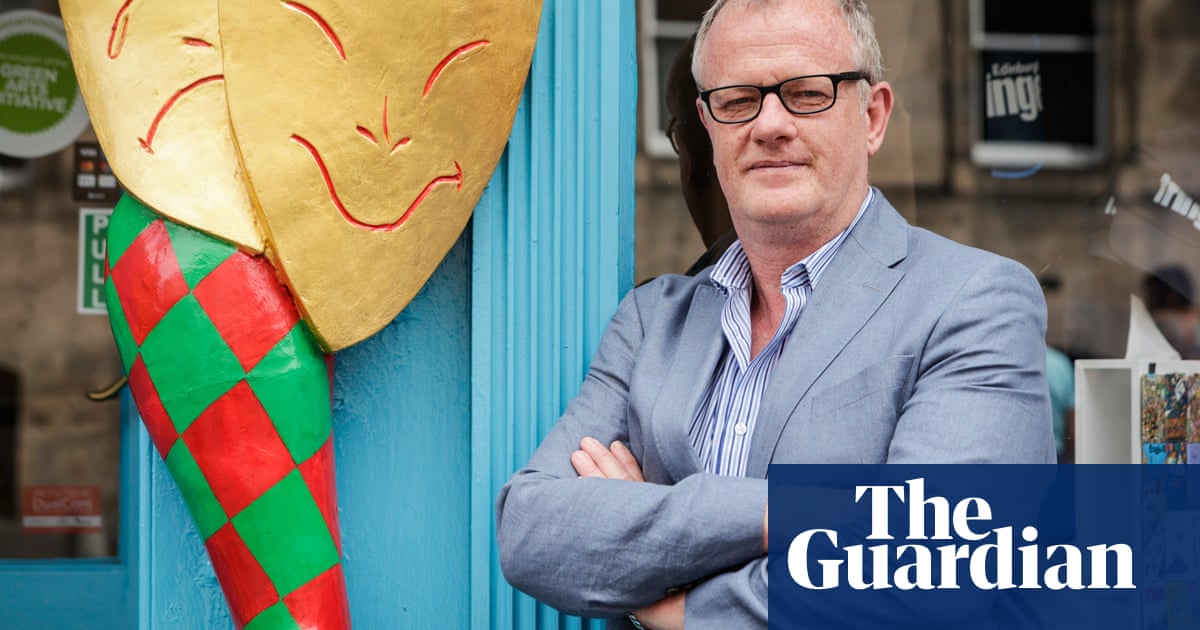Organisers ofEdinburghfringe events have been urged to be “pretty smart” and capitalise on the decision by Oasis and AC/DC to play gigs in the city midway through the festival.
There was surprise and irritation when it emerged the bands would be staging four concerts at Murrayfield stadium in mid-August when the world’s largest arts festival is in full flow.
Tony Lankester, who recently took over as the Fringe Society’s chief executive, said fringe companies should see the concerts as an opportunity rather than fret about downsides.
About 75,000 fans are expected for each concert – three by Oasis and one by AC/DC, putting the city’s trains, buses and trams under even greater strain, with visitors competing for alreadyscarce and expensive hotel beds.
Lankester, who previously ran South Africa’s national arts festival, said fringe venues should tempt Edinburgh residents who may “want to hide” when the concerts take place with discounted tickets or free wine.
Venues could also tempt Oasis andAC/DCconcertgoers with “morning after” performances in the city with free bacon rolls and coffee, he suggested. “What we don’t want to happen is for the local audience to hide that night,” he said. “There’s some pretty smart marketing type things that I think venues could be looking at. The fact is that it’s not going away. Why not be completely opportunistic about it?”
This year’s fringe, which runs from 1 to 25 Augustand takes place alongside the international festival and book festival, is expected to involve about 50,000 performances at 265 venues.
Lankester said the strength of the programme, which includes themes such as rebellious women, the apocalypse, queer joy and rave culture, showed artists were as hungry as ever to perform despite global crises and tensions. “What excites me most about the programme, is the signal that it sends is of an industry in healthy shape,” he said.
For the first time, five shows from US performers are being underwritten by donors to theKeep it Fringefunding strand launched in 2023 by the Fleabag creator Phoebe Waller-Bridge, the fringe’s honorary president, to support new, marginalised or innovative acts.
Lankester said he had numerous conversations that “reaffirmed for me what I knew coming into this job, that there’s a lot of love and joy around the fringe. It’s something that people absolutely want to preserve, protect, engage with, be part of. It’s still on an incredible number of people’s bucket lists.”
He said he was talking to major brands about the potential to become headline sponsors of the fringe for the first time, to bring in extra revenue for performers and venues at a time of intense pressure on public funding. He said those discussions were at an early stage, but indicated it could involve a bank or beer brand. No sponsor would be allowed to rebrand the fringe, but their investments would help the festival to improve its finances.
Sign up toThe Guide
Get our weekly pop culture email, free in your inbox every Friday
after newsletter promotion
In her last newspaper interview, Shona McCarthy, Lankester’s immediate predecessor,accused political leaders of consistently neglecting the fringeand failing to adequately invest in services, transport and infrastructure such as mobile phone services.
Lankester said he “stood by” everything McCarthy had said. Her “enormously valuable” intervention had fuelled action and more responsiveness in the council, the Scottish government and other agencies, he said, adding: “The message landed.”
Lankester is lobbying Edinburgh council to devote at least £1.1m of a new visitor levy on hotel beds to supporting the festival, and is in talks about strengthening the city’s ailing mobile and wifi services, as well as improved rail services for non-residents.
The visitor levy will come into force in July 2026, but hotels will begin collecting it on all bookings made from October this year. “What we don’t want to happen is for that money to sort of disappear into a black hole and for no benefit to be felt by the people [who] drive a big chunk of that revenue,” he said.
